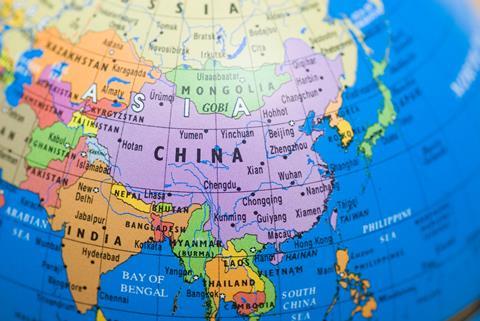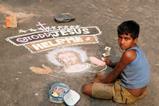Western mission agencies who use old language, like “conversion” or “unreached people groups” are putting lives at risk, says Bishop Joseph D’Souza. The majority world does need the gospel, he says, but so does the UK, Europe and the US

Geo-political sensitivities are very different from the last century.
While the worlds of business and politics have contended with phenomenal changes, it appears that Western churches and missions are unwilling to adapt.
Take, for example, the lingo used by mission organisations. Many still use old language, which triggers deep hostility and violence against Christians. Terms like “conversion” or “unreached people groups” cause us great trouble, yet they are still widely used.
The Western world must take an honest look at the steady decline of the Western church. Western Christians should acknowledge that their mission models are not working within their own cultures - let alone elsewhere.
One wonders, why does a church that has not addressed its own serious decline think they have a model for the rest of the world?
Slogans such as “discipling a nation,” when coming from a Western church, are tone-deaf. Many of the churches working toward this agenda in other parts of the world have not even discipled their own neighbours!
Before you cross the ocean, you must first have credibility when you cross the street
Unfortunately, Western mission agencies have found it very hard to hand over power and strategy to local leaders. Various forms of neo-colonialism are still at play. Financial power is also a major stumbling block. Those who have degrees in conducting mission work need to understand that Jesus actually humbled himself and in an inverted power paradigm shift, allowed humans to lead the church under his headship.
Western mission organisations also continue to be obsessed with numbers. According to some, there have been 500 million decisions for Christ in India in the last 50 years. If that were true, why do we not find that many radically transformed lives everywhere in India with a massive impact on society? Similarly, think about all the claims of decisions for Christ made in America. What is the net impact of transformed lives and communities? Where are the supposed tens of millions of genuinely transformed lives there?
The simple explanation is that a “decision” does not mean authentic regeneration.
One reason for this sad reality is a shallow and reductionist understanding of the Gospel of the Kingdom of God that seems to pervade in the West.
For too long, we’ve heard preachers encourage hurting souls to accept Jesus as their saviour in order to go to heaven. There’s been far too little regard for inter-requiem between heaven and earth. A ticket to heaven isn’t a cure for hell on earth for the poor, the trafficked, the disenfranchised, the suffering and the lost in this cruel world.
This error has left societies around the world – with people who long to know the life, love, and presence of Jesus in order to live life here and now – with only a partial version of the truth that will set them free. Many broken individuals and entire communities are crying out for God’s solutions for the issues and burdens of today.
For the good news of the full gospel to take root in the majority world, it ought to be preached in the context of long-term relationships and societal involvement where paradigm-shifting decisions are made. These bold decisions are made collectively and not merely by individuals. We ignore the bond of tightly-knit families and cultures at our own peril in the work of being a Christian witness to a community.
Put more simply: transactional Western thinking has hallowed out the full power of the Gospel in many cultures around the world.
Transformational impact takes root best in a local setting, at a slower pace than is customary in the West. Those of us who live in the majority world must recognise that a modern missions model built around the economic, political and cultural might of the Western world is theologically flawed and unsustainable.
The culture of fast training, instant church plants and the like is one flaw of this imported model.
Western Christians must recognise that, in the majority world, church planting as it exists today is often seen as part of the imperial colonial political enterprise to bring about demographic changes and destabilise local cultures, especially when it is carried out on the behest of foreign agencies and groups. There is a significant pushback against this in today’s cultures which was not there 100 years ago.
We need to engage in the spread of the gospel as the early Christian communities did by patiently coming alongside our brothers and sisters who are trying to witness and give them the freedom and authority to witness in a way that reflects the specific needs and issues of that community. The early church did it best through the laity, who reached out to their communities on a more personal and social level.
Laying down community roots and building trust as men and women of peace takes time, care, and a lot of listening. Arbitrary goals and milestones, or counting “conversions,” must become a thing of the past.
Genuine transformation within a local community is what matters, and this will more authentically draw people to the love of God.
Some Christians look to the year 2033 – the 2000-year anniversary of the resurrection – as the next big impetus for world evangelisation with its accompanying publicity and goals. But I would encourage these believers to refocus their efforts.
It would be best to spend a good degree of effort re-evangelising the West. Perhaps it’s time for Western Christian leaders to visit local Christian leaders in the majority world, learn from them, and see what God is already doing in the hearts of those there.
Before you cross the ocean, you must first have credibility when you cross the street. That credibility will build, in time, when the love of Christ is displayed not as a way to get to heaven but as a way for heaven to invade the earth.






































No comments yet